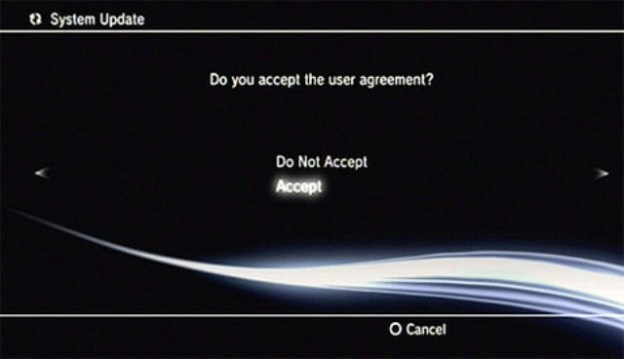 It wasn’t long ago that we could barely keep up on the unending, daily accounts of Sony PlayStation hacks. The PSN and other Sony Web properties worldwide were subject to hackers for months, and users found themselves unable to use their subscription services as well as risking their credit card and personal data.
It wasn’t long ago that we could barely keep up on the unending, daily accounts of Sony PlayStation hacks. The PSN and other Sony Web properties worldwide were subject to hackers for months, and users found themselves unable to use their subscription services as well as risking their credit card and personal data.
To say Sony’s reputation was tarnished would be something of an understatement. The company did what it could to placate user frustrations, but the PSN Welcome Back program and the promise of free games isn’t going to make anyone forget. And because of that, Sony is issuing a few updates to its terms of service.
Users will be asked to perform a mandatory upgrade on their PS3’s, which will include this new jargon:
Any dispute resolution proceedings, whether in arbitration or court will be conducted on an individual basis and not in a class or representative action or as a named or unnamed member in a class, consolidated, representative or private attorney general legal action, unless both you and the Sony entity with which you have a dispute specifically agree to do so in writing following initiation of the arbitration. This provision does not preclude your participation as a member in a class action filed on or before August 20, 2011.
Basically, Sony is trying to cover its bases from being held fully responsible should something like the PlayStation hacks ever happen again. The PSN security breach unsurprisingly resulted in a class action lawsuit filed against the company in April, a case which remains ongoing. By electronically pigeon-holing customers into this agreement barring them from joining class action suits, Sony could avoid more court time as a result of hacks. There’s no way to by-pass the new TOS via the upgrade, instead you’ll have to send a letter to the company’s headquarters in Los Angeles. Saying no to the upgrade means you can’t play games online.
We’d suggest taking the time to pen that letter. Sony’s taking great measures to improve the security of its network, but sneaking a clause like this into an upgrade and requiring it to play online games doesn’t speak well of a company’s intentions. Given the amount of users who are likely to barely glance at the legal-speak and hit “accept,” the whole thing feels a bit underhanded.


